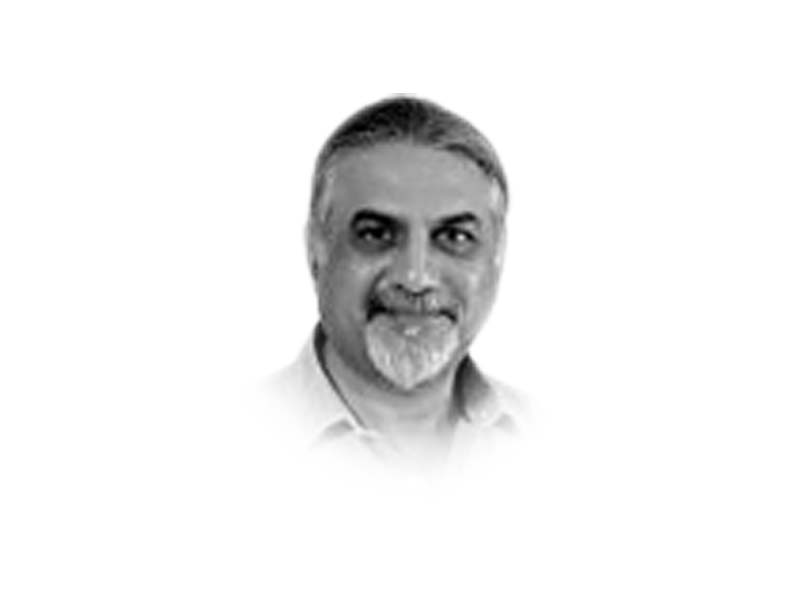
Despite huge doubts of the western world and its concerns about the unwillingness of President Erdogan to hold elections, Turkey has been through the first round of elections and by the time this piece gets published the second round of elections in Turkey will be over. Chances are that Erdogan will once again prove another western assumption wrong. West believes that the devastating 1999 earthquake created a very unfavourable political climate for the ruling Kemalists, and Erdogan benefited from it. The assumption this time was that if it was one earthquake that brought him to power, it would be another that will oust him.
It seems that the people of Turkey will bring Erdogan back in power for yet another five-year term. So, if Erdogan leaves office in 2028, he will go down in history as Turkey’s second longest serving president, just a year shy of Kemal Ataturk’s rule. For any student of politics, the one big question that stands out about the last two decades of Turkish politics is how Erdogan has managed to dominate Turkish politics and remained in power for such a long period despite the many challenges he has faced. Can Pakistan’s politicians take a leaf from the Erdogan’s book of politics?
The most striking thing about Erdogan’s politics is that he is a great risk taker. For instance, after the February 6 earthquake that killed more than 45,000 people, it was generally believed that President Erdogan will not call for elections. Many thought his administration was involved in the construction of substandard buildings that collapsed in the earthquake and resulted in increased causalities was big enough a factor for him to delay elections. But Erdogan took the risk and went ahead with announcing the election on the due date. This is what makes Erdogan such a powerful politician — one who seems to have figured out a way to insulate himself from all the emerging threats and challenges hurled at him. Politicians in Pakistan should learn from Erdogan’s style of politics, as no Pakistani Prime Minister has ever completed his/her tenure in office.
The best thing that one can attribute to Erdogan’s politics is that he has allowed it to evolve. His politics has changed many shades. When he first came to power in 2003, he was an anti-western Islamist, but he didn’t take long to turn into an autocrat. He threw a big political challenge to the Kemalists, seeking support from the Gulenists. But after 2016, he turned against the supporters of Fethullah Gulen as they tried to overthrow his government and even cancelled passports of 50,000 Turks suspected of links with the America-based cleric. As an anti-Kemalist, he introduced reforms, brought Turkey out of economic crisis and turned it into a powerful nation. Today again, Erdogan speaks admiringly about Kemal Ataturk and his politics. Today he acts as a conservative democrat who copies Ataturk’s paternalistic political approach. As the Turkish constitution prevents any Turk from naming himself Ataturk, he has not taken that name but has self-styled himself as the father of the nation (Ataturk).
If social contract is what binds people with the state, then today there is a great similarity in how governments both in Turkey and Pakistan are taking their social contracts forward. Today Turkey is considered as the world’s largest prison for journalists. Social movement marches have been banned in Turkey since 2015 and Wikipedia has been blocked since 2017. The European Convention on Human Rights is under suspension and thousands of civil servants are detained and jailed. President Erdogan has closed more than 100 media outlets and his greatest strength lies in the control of information. He controls 90% of the Turkish media houses and the businessmen that run them; and the few independent Turkish TV networks not controlled by pro-Erdogan businesses have been slapped with exorbitant fines and taken off air for many days. The opposition in Turkey is marginalised, the press is subservient, freedoms are curbed. Erdogan’s ideological grip on the society is firm, all institutions are under his influence and all secularism, openness and cosmopolitanism in the society is fast giving way to nationalism. Erdogan is Turkey’s new Sultan — he is the head of the state, head of the government, head of the ruling party, head of the national police and also the head of the military. Yet whatever is happening in Turkey, unlike in Pakistan, people are happy with Erdogan. Why?
Despite all the curbs on the freedom, people in Turkey don’t feel abandoned by the government. Crown Prince Mohammed bin Salman, whom Erdogan had accused of ordering the murder of journalist Jamal Khashoggi at the Saudi Consulate in Istanbul, has deposited $5 billion in the Turkish central bank. Russia’s state-owned corporation Rosatom has also provided $5 billion in July 2022 to finance a new nuclear plant, the Akkuyu Nuclear Power Station, in southern Turkey. The government-controlled media hardly discusses the curbs on the freedoms. What is highlights it Turkey’s growing status as an international power, the discoveries of oil in the Black Sea, country’s first domestically produced car and the newly commissioned helicopter carrying naval vessels. The stories that are flashed are not about curb on freedoms and liberties but about how amazing is Erdogan as a leader and how he is making Turkey a great power again.
Clearly, the world being ruled by autocrats is not being opposed as long as the governments are able to handle the economies, bring in the foreign investment and keep their social contracts with the people in balance. The people being ruled by autocratic governments have so much on their plate that if autocrats can keep an economic balance and avoid economic crisis, people have no time to challenge the curbs on their freedoms and liberties. In the overall cost-benefit analysis, people are satisfied with the phones in their hands, constant browsing and a life that goes on and doesn’t stop for them and their children. The world and politics within it have changed and so we have Turkey, India, China, Russia, Saudi Arabia, Hungry, Syria, Egypt and many Latin American countries having autocratic leaders — all curbing liberties and freedoms but all trying hard to find ways to put their economies right.
It’s no more righteousness in politics, its Hobbesian Leviathan together with running the economies right. So, if the current government can also find a way to turn around Pakistan’s economy, then people will gradually forget what goodness liberty and freedom can bring as long as their kitchens run and their lives are safe and secure. I can’t say this is right but this is the new world that we should all prepare ourselves to live in.
Published in The Express Tribune, May 28th, 2023.
Like Opinion & Editorial on Facebook, follow @ETOpEd on Twitter to receive all updates on all our daily pieces.




1722415155-0/BeFunky-collage-(18)1722415155-0-165x106.webp)
1717051338-0/BeFunky-collage-(76)1717051338-0-165x106.webp)


1729685382-0/Untitled-design-(57)1729685382-0-270x192.webp)




COMMENTS (2)
Comments are moderated and generally will be posted if they are on-topic and not abusive.
For more information, please see our Comments FAQ